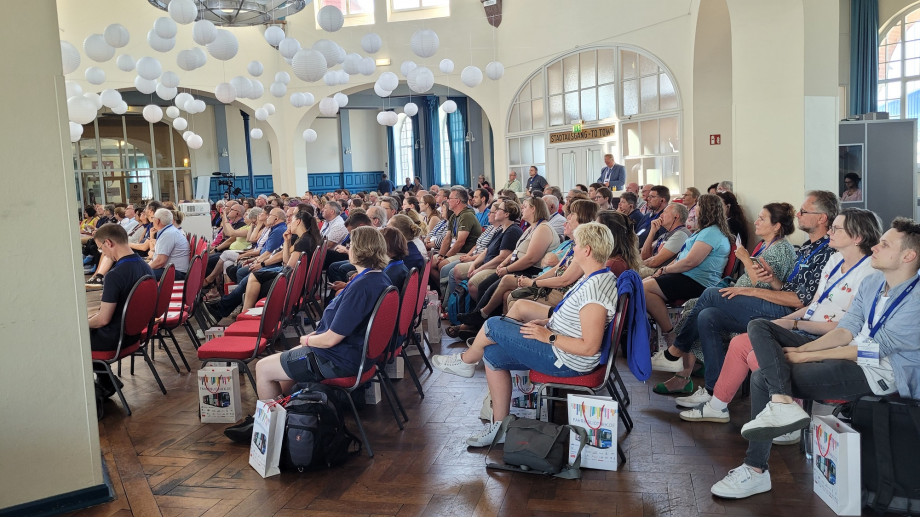News

The second day of the Mobile Library Congress in Cuxhaven was not only about lectures and speeches, but above all about the opportunity to see the more than 20 bookmobiles that arrived at the event from different parts of Europe.
The colourful parade of mobile libraries had arrived in the city in the morning, and congress participants were able to admire the vehicles until the evening hours.
Visitors were able to admire, among other things, the Columbus, which is a Dutch bookmobile with educational functions, the Swedish electric and modern mobile libraries, but also a bookmobile from Poland, which arrived in Cuxhaven from Gostyń. For Magdalena Lau from the Wolomin library, the most significant experience was to see the bookmobiles in motion: to experience the enthusiasm, joy, and passion of the librarians, “We were able to feel like local people being reached by the mobile library," the congress participant pointed out.
“It was a valuable experience to be able to see specific technical solutions that I hope to use in the future," concluded another participant from the Polish group, director Sylwia Błasiak from the library in Andrychów.
During the presentations, participants were able to learn about, among other things, a mobile app to support user services in Sweden and how Estonia's only bookmobile operates, which, besides readers, is also visited by their four-legged companions. Also presented was the work of mobile libraries in the Danish-German border area (cooperation between the two countries is being strengthened for measures to support minorities there). Bookmobiles reach specific locations there, visiting especially elderly and lonely people. A presentation on the bookmobile from Nicaragua attracted a lot of interest. The bookmobile there is fully funded by a German foundation and operates in a very challenging environment: the price of a book reaches up to 10% of the average monthly salary, and the capacity of mobile libraries is limited not only by budgets but also by bureaucracy.
A speech by a library representative from Luxembourg also stuck in the memory of the Polish participants, especially the impressive approach to constantly updating the law to keep up with the ever-changing reality as well as the expectations and needs of libraries and their users.
Extremely valuable experiences were shared by the Netherlands. The country's mobile libraries support a variety of services for local residents, have an ATM, lend seeds (seeds are returned after a year, from plants one has grown) and plan further activities, such as being able to deliver shopping or medicines to recipients.
Natalia Dyjas-Szatkowska from the Provincial and Municipal Public Library in Zielona Góra and Joanna Gil from the Municipal Public Library in Wrocław emphasised that, regardless of the modern solutions made possible by mobile libraries, the most important thing for the librarians operating them is contact with readers. Łukasz Załęski, director of the Piaseczno library, added that the most important factors in setting up a mobile library are the commitment and passion of the librarians operating the bookmobiles.
The second day of the event ended with a ceremonial departure of the bookbuses from Cuxhaven. Congress participants had the opportunity to say goodbye to the mobile libraries leaving the city.
***
The Book Institute organised and co-financed a trip to the event, which was attended by representatives of Polish cultural institutions and other organisations operating mobile libraries or planning to launch them.
Gallery







